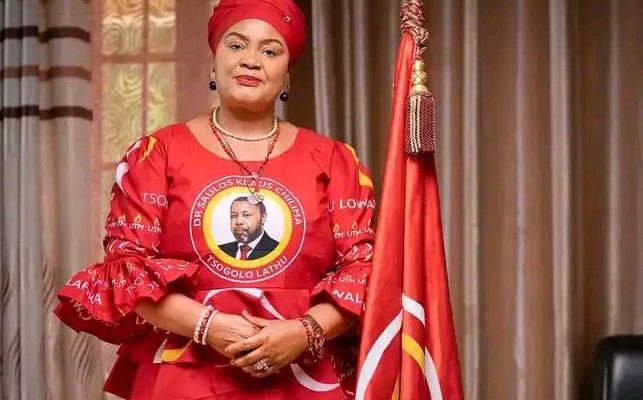
In an ongoing legal battle involving Patricia Kaliati, the Secretary-General of the United Transformation Movement (UTM), her lawyer has accused the government of using delaying tactics to hinder the progression of the case.
This development has raised concerns about transparency and the administration of justice, as the defence team alleges that these delays could be intentional, serving to create obstacles for their client’s right to a fair and timely trial.
The case, which has attracted significant public interest, is yet another example of the challenges faced by high-profile political figures entangled in legal disputes. According to the defence lawyer, procedural delays and multiple adjournments have characterized the proceedings, stalling progress.
The defence argues that these delays not only prolong the legal uncertainty surrounding Kaliati but also hinder her ability to perform her duties within the UTM, an influential political party in Malawi’s landscape.
The lawyer asserts that these alleged tactics are undermining justice and infringing upon Kaliati’s rights. “Our client has the right to a swift and transparent legal process. These unnecessary delays are raising questions about the government’s intentions and commitment to fair proceedings,” the lawyer stated in a recent press briefing.
This claim comes amidst an environment where cases involving political figures often experience prolonged timelines, which some critics believe are indicative of a wider trend of political interference in legal matters.
The defence team contends that the government might be using these tactics to weaken the UTM’s influence or intimidate its members, particularly as the country prepares for the upcoming 2025 elections.
Kaliati’s legal team believes the delays could be a means of disrupting her role within the party, thus impacting UTM’s preparations and campaign efforts.
The delays have placed added pressure on Kaliati, a key figure in the UTM known for her vocal advocacy and active role in Malawi’s political sphere. She continues to serve as UTM’s Secretary-General, yet these legal challenges could potentially affect her work and the stability of her party leadership.
Legal experts have noted that prolonged litigation could have a broader impact, not only on Kaliati’s personal standing but also on the party’s image and capacity to mobilize support.
“The frequent adjournments are burdensome, both personally and professionally, for any leader. For Patricia Kaliati, these delays hinder her ability to fully concentrate on her party duties and contribute effectively to her party’s vision,” noted a legal analyst.
This case has renewed calls for judicial reform in Malawi, particularly concerning cases involving political figures. Legal practitioners and civil society advocates argue that political cases should be expedited to avoid any perception of bias or misuse of the judiciary. Delays, whether real or perceived, can undermine the integrity of the legal system and erode public trust in the government’s impartiality.
The government, however, has not publicly responded to these allegations of delay, and no official explanation has been given for the prolonged proceedings. If such tactics are indeed being used, they may set a concerning precedent for other cases involving political figures.
As the case moves forward, pressure continues to mount on the judiciary to ensure a fair and impartial process for Patricia Kaliati. While the defence’s accusations of delay tactics raise critical questions about the intersection of politics and justice in Malawi, it remains to be seen whether the government will take steps to address these concerns.
For now, the case serves as a potent reminder of the potential influence of politics within the judicial system—a matter that both the government and the judiciary will need to navigate carefully, especially in the lead-up to the 2025 elections.
The eyes of the public and international observers will be on this case, as it underscores the importance of judicial independence and the right to a fair trial, values that are essential for the democratic process.














